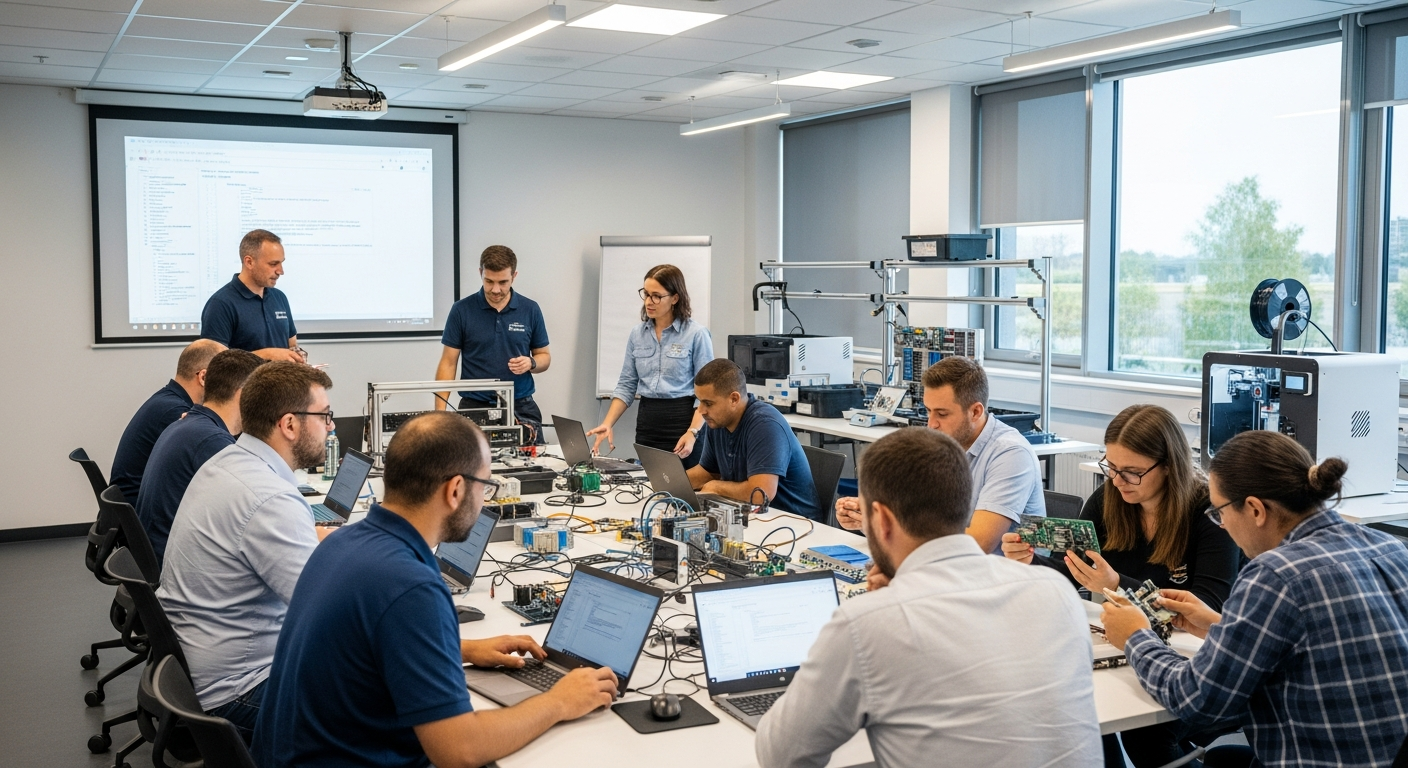Micro-Credentialing: The Future of Skill Validation
In today's rapidly evolving job market, traditional degrees are no longer the sole benchmark for professional competence. Enter micro-credentialing, a revolutionary approach to skill validation that's reshaping how we perceive and showcase expertise. This innovative system offers bite-sized, targeted certifications that validate specific skills, providing a more agile and responsive method for career advancement and education.

The concept gained traction in the early 2010s, with tech companies and online learning platforms leading the charge. As the digital economy expanded, the demand for specialized skills outpaced the supply of traditionally educated workers, creating a fertile ground for alternative credentialing methods.
How Micro-Credentials Work
Micro-credentials are typically earned through short courses, workshops, or assessments that focus on specific competencies. These can range from technical skills like data analysis or cloud computing to soft skills such as leadership or project management. Upon completion, learners receive a digital badge or certificate that can be easily shared on professional networks and resumes.
The beauty of micro-credentialing lies in its flexibility and precision. Professionals can curate a portfolio of credentials that accurately reflects their skill set, allowing for a more nuanced representation of their capabilities than a single degree might provide.
The Impact on Career Advancement
For job seekers and career changers, micro-credentials offer a powerful tool for differentiation in a crowded market. They provide tangible evidence of up-to-date skills, demonstrating a commitment to continuous learning—a trait highly valued by employers.
Moreover, micro-credentials enable rapid career pivots. In industries where technological advancements occur at breakneck speed, the ability to quickly acquire and validate new skills can be the difference between stagnation and progression. This agility is particularly crucial in fields like IT, digital marketing, and data science, where job roles evolve constantly.
Employer Perspectives on Micro-Credentials
Employers are increasingly recognizing the value of micro-credentials in their hiring and development processes. These bite-sized certifications offer a more granular view of a candidate’s capabilities, allowing for more precise matching of skills to job requirements.
Many forward-thinking companies are incorporating micro-credentials into their internal training programs, using them to upskill their workforce efficiently and track employee development. This approach not only enhances productivity but also boosts employee retention by providing clear pathways for growth within the organization.
Challenges and Considerations
While micro-credentialing offers numerous benefits, it’s not without challenges. The lack of standardization across providers can make it difficult for employers to assess the quality and rigor of different credentials. There’s also the risk of credential inflation, where the market becomes saturated with badges of varying significance.
Additionally, while micro-credentials excel at validating specific skills, they may not capture the breadth of knowledge and critical thinking abilities that traditional degrees aim to develop. As such, they are best viewed as complementary to, rather than replacements for, comprehensive education programs.
The Future of Micro-Credentialing
As the concept matures, we can expect to see greater standardization and recognition of micro-credentials across industries. Blockchain technology is already being explored as a means to create secure, verifiable credential ecosystems, enhancing the legitimacy and portability of these certifications.
Furthermore, the integration of micro-credentials with artificial intelligence and data analytics promises to revolutionize personalized learning and career pathing. Imagine a system that can analyze your current skill set, identify gaps based on your career goals, and recommend specific micro-credentials to bridge those gaps—all tailored to your learning style and schedule.
Embracing the Micro-Credentialing Mindset
For professionals looking to thrive in this new landscape, adopting a micro-credentialing mindset is crucial. This means approaching learning as an ongoing, modular process rather than a one-time achievement. It involves regularly assessing your skill set against market demands and strategically acquiring new credentials to stay competitive.
Start by researching micro-credential options in your field or desired career path. Look for reputable providers and credentials that are recognized by industry leaders. Consider creating a personal development plan that incorporates a mix of traditional education and micro-credentials, tailored to your career goals and the evolving needs of your industry.
Conclusion
Micro-credentialing represents a significant shift in how we approach skill validation and professional development. By offering a more flexible, targeted, and responsive system for acquiring and demonstrating competencies, it empowers individuals to take control of their career trajectories in unprecedented ways.
As the job market continues to evolve at an accelerating pace, the ability to quickly adapt and showcase relevant skills will become increasingly vital. Micro-credentialing provides a powerful tool for navigating this dynamic landscape, enabling professionals to remain agile, relevant, and competitive throughout their careers.
Embracing this new paradigm of continuous, modular learning will be key to thriving in the future of work. Whether you’re a recent graduate looking to stand out in the job market, a mid-career professional seeking to pivot, or an employer aiming to build a more skilled and adaptable workforce, micro-credentialing offers a pathway to success in the ever-changing world of work.






